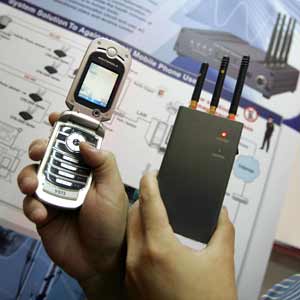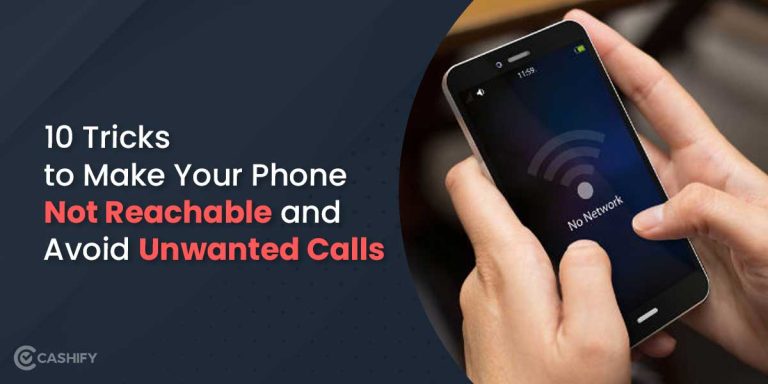Are Phone Signal Blockers Illegal?
Phone signal blockers, or cell phone jammers, are devices used to block or interfere with cell phone signals. They are sometimes considered illegal as they can be used to disrupt radio communication signals, such as those used by law enforcement or emergency services. In some countries, such as the United States, using a signal blocker is illegal, and those caught using it can face fines or jail time. However, in other countries, such as the United Kingdom, they are not specifically illegal, but it is an offense to interfere with radio communications.
Definition of a Phone Signal Blocker
Phone signal blockers, also known as cell phone jammers or signal jammers, are electronic devices that disrupt the signals of wireless communication devices, such as mobile phones, radio, Bluetooth, and Wi-Fi. These devices can prevent the reception of radio signals from base stations and other communication devices. In most countries, these signal-blocking devices are illegal and are considered as a form of trespass or breach of contract.
Phone signal blockers are usually used by people for various reasons, such as preventing unwanted calls and texts, blocking out unwanted conversations or noise, or even preventing GPS tracking. However, due to the fact that cell phones are a vital communication tool for many people, it is illegal to use these devices in most countries.
In addition to being illegal, these devices can cause serious problems in areas with high levels of wireless communication, such as airports, medical facilities, and military bases. Due to their potential for interference, the use of phone signal blockers can result in a disruption of vital communication services, resulting in a decrease in safety and security.
Therefore, it is important to understand the legal implications of using phone signal blockers in order to avoid the potential for harm and disruption. To ensure that you remain compliant with the law, it is wise to consult your local authorities before using any type of signal-blocking device.
Legality of Mobile Signal Blockers in Different Countries
The use of mobile signal blockers, also known as cell phone jammers, is a topic of much debate as it has become increasingly widespread in recent years. While the technology may be used for legitimate purposes such as blocking calls in hospitals or in classrooms, it can also be used to prevent people from using their phones in public places. As a result, the legality of signal blockers is an important question.
The legality of using mobile signal blockers varies from country to country. In the United States, the Federal Communications Commission (FCC) has prohibited the use of mobile signal blockers. In countries such as Canada and the United Kingdom, the devices are illegal to own or use. In other countries, such as India and Germany, their use is restricted to specific areas and for specific reasons.
In addition to the laws that govern the use of cell phone jammers, there are also ethical considerations to be taken into account. In some cases, the use of these devices may be seen as an invasion of privacy or a form of censorship. It is therefore important to consider the implications of using signal blockers before doing so.
Overall, the legality of cell phone jammers is a complicated issue and varies from country to country. It is important to be aware of the laws in your area before using one of these devices. Additionally, it is important to consider the ethical implications of using signal blockers.
Advantages and Disadvantages of Mobile Signal Blockers
With the ever-increasing popularity of mobile phones, the use of mobile signal blockers has become increasingly common as well. While these devices are used for a variety of reasons, it is important to understand the advantages and disadvantages of using mobile signal blockers.
One of the main advantages of using a mobile signal blocker is the increased security and privacy that it provides. With the use of a mobile signal blocker, your phone will not be able to receive or transmit any signals, making it difficult for anyone to access your personal data. Additionally, it can help to prevent your phone from being tracked by third parties, giving you the peace of mind that your data is safe.
However, there are also a few disadvantages associated with using a mobile signal blocker. For example, it can be difficult to communicate with people if you are using a signal blocker. Additionally, the use of a mobile signal blocker can lead to poor network reception and connection speeds. Furthermore, some countries may have laws against the use of mobile signal blockers, so it is important to do your research before using one.
Overall, the use of mobile signal blockers can offer many advantages, such as increased security and privacy. However, it is important to be aware of possible drawbacks, such as decreased communication abilities and potential legal issues. Ultimately, it is important to understand the advantages and disadvantages of using mobile signal blockers before deciding if they are right for you.
Types of Mobile Signal Blockers
Mobile signal blockers come in various shapes and sizes, ranging from small handheld devices to large-scale military-grade solutions. Depending on your needs, you can choose from blockages that can affect a single frequency, multiple frequencies, or even all frequencies. For instance, signal blockers used in prisons typically cover a wide range of frequencies to prevent inmates from using their mobile phones. On the other hand, commercial signal blockers are designed to block specific frequencies, such as those used to operate drones or to disrupt Wi-Fi signals. Whatever your needs, there is a signal blocker that can meet them.
It’s important to note that while signal blockers are widely available, it’s illegal to use them in certain areas. In the United States, the Federal Communications Commission (FCC) regulates the use of signal blockers. Under their regulations, the use of signal blockers in public places is illegal, unless you have permission from the FCC. This means that if you want to install a signal blocker in a public area, you must first obtain a permit from the FCC.
In addition, the use of signal blockers in certain areas, such as airports and military bases, is strictly prohibited. Installing a signal blocker without permission in these areas can result in hefty fines or even jail time.
So, while signal blockers can be a useful tool in certain settings, it’s important to check the laws in your area before using one. By taking the time to understand the regulations, you can ensure that you’re using your signal blocker legally and safely.

Potential Uses of Mobile Signal Blockers
From jamming cell phone signals in prisons to preventing drivers from using their mobile devices while driving, the potential uses of mobile signal blockers are vast. But, aside from these, there are a few other practical applications for signal blockers. For example, signal blockers can be used to minimize distractions in classrooms or offices. By blocking out mobile signals, teachers and managers can ensure that students and employees are not distracted by their phones. Additionally, signal blockers can be used in restaurants, theaters, and other places of entertainment. By blocking out mobile signals, patrons can enjoy their meal or experience uninterrupted. Additionally, signal blockers can be used in private residences to ensure that neighbors are not able to eavesdrop on conversations or access private Wi-Fi networks.
In short, mobile signal blockers can be used in a variety of settings to ensure that the environment remains distraction-free and private. It is important to note, however, that the legality of signal blockers depends on the country and the context in which they are used. Therefore, it is always best to check with local laws and regulations before purchasing or using a signal blocker.
Regulations Surrounding Mobile Signal Blockers
When it comes to mobile phone signal blockers, there is a lot of confusion as to their legality. In the US, the Federal Communications Commission (FCC) is the regulatory body that enforces laws and regulations surrounding the use of mobile signal blockers. In general, it is illegal to use a device that blocks, jams or interferes with authorized communications such as cellular and Wi-Fi signals. This includes the use of mobile signal blockers.
However, there are certain exceptions to this rule. The FCC allows the use of signal blockers for certain categories of entities, such as hospitals, prisons, and government entities that require them for security purposes. Also, individuals may use signal blockers for their own personal use, such as a device that blocks cell phone calls while driving.
It is important to note that even though the FCC permits the use of certain signal blockers, they must comply with specific rules and regulations. For instance, any device that is used for jamming or blocking cellular and Wi-Fi signals must be registered with the FCC and must also adhere to signal strength limitations.
In conclusion, the use of mobile signal blockers is regulated by the FCC and must comply with specific rules and regulations. It is important to understand the regulations and restrictions surrounding the use of mobile signal blockers before using one.
Impact of Mobile Signal Blockers on Mobile Network Providers
The use of mobile signal blockers has grown significantly over the years, and this has had a direct impact on mobile network providers. Mobile network providers rely on signals to provide coverage and services to their customers. When signals are blocked, it can cause service interruptions and decreased performance. This can have a negative effect on the customer experience and ultimately on the provider’s bottom line.
The use of mobile signal blockers is also illegal in many countries. It is illegal to interfere with a mobile network, and using a signal blocker can be seen as tampering with the network. Mobile network providers have the right to take legal action against anyone using signal blockers, and this can result in large fines or even jail time depending on the severity of the offense.
In addition to being illegal, the use of mobile signal blockers can have a detrimental effect on the mobile network provider’s networks. As mentioned earlier, it can cause service interruptions and decreased performance, leading to unhappy customers. Furthermore, it can also lead to a decrease in revenue for the provider due to customers switching providers due to poor service.
Overall, the use of mobile signal blockers can have a significant impact on mobile network providers. It not only carries legal repercussions, but it can also lead to a decrease in revenue due to decreased performance and customer dissatisfaction. Therefore, it is important for anyone considering using a mobile signal blocker to take all of these factors into consideration before doing so.
Alternatives to Mobile Signal Blockers
Mobile signal blockers are not the only way to protect your privacy and security. There are several alternatives to mobile signal blockers that you can use to improve your privacy and security.
One of the most effective alternatives to mobile signal blockers is encryption. Encryption ensures that all the data and communications sent through your phone or computer can only be accessed by the intended recipient. This means that no one can intercept or access your data without your permission.
Another alternative to mobile signal blockers is to use a virtual private network (VPN). A VPN acts as an intermediary between your device and the internet. It encrypts all the data that passes through it and prevents anyone from accessing your data without your permission.
You can also use strong passwords for all your accounts. This will help protect your data from being accessed by unauthorized people. Additionally, you should use two-factor authentication whenever possible. This requires you to provide an additional piece of information, such as a code sent to your phone or email, to access your accounts.
Finally, you should use secure websites when shopping online. Look for sites that have HTTPS in their URL and use secure payment methods such as PayPal or Apple Pay.
Overall, mobile signal blockers are not the only way to protect your privacy and security. There are several alternatives such as encryption, using a VPN, strong passwords, two-factor authentication, and secure websites that you can use to stay safe online.
Conclusion
Phone signal blockers are not considered illegal in most countries and are widely used for a variety of purposes. However, it is important to understand the laws and regulations of a specific country before using any type of signal-blocking device. In some cases, phone signal blockers can be used to unlawfully interfere with communication, and the use of such blockers can lead to legal repercussions.







